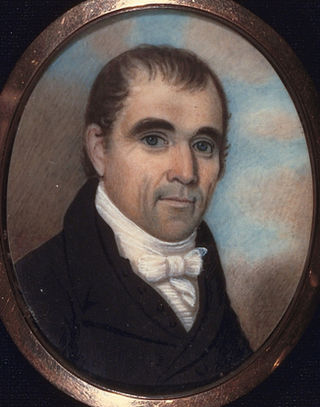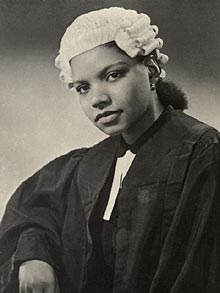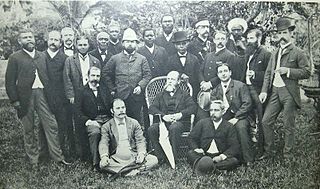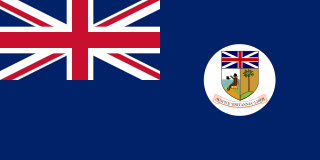
Sierra Leone, officially the Republic of Sierra Leone, is a country on the southwest coast of West Africa. It is bordered to the southeast by Liberia and by Guinea to the north. Its land area is 71,740 km2 (27,699 sq mi). It has a tropical climate and environments ranging from savannas to rainforests. As of the 2015 census, Sierra Leone had a population of 7,092,113. Freetown is both its capital and its largest city. The country is divided into five administrative regions, which are further subdivided into 16 districts.
Sierra Leone first became inhabited by indigenous African peoples at least 2,500 years ago. The Limba were the first tribe known to inhabit Sierra Leone. The dense tropical rainforest partially isolated the region from other West African cultures, and it became a refuge for peoples escaping violence and jihads. Sierra Leone was named by Portuguese explorer Pedro de Sintra, who mapped the region in 1462. The Freetown estuary provided a good natural harbour for ships to shelter and replenish drinking water, and gained more international attention as coastal and trans-Atlantic trade supplanted trans-Saharan trade.
Christopher Elnathan Okoro Cole, CMG OBE was a Sierra Leonean politician. He served as Governor-general and President of Sierra Leone for 1 day in 1971. Cole was appointed officer of the Most Excellent Order of the British Empire (OBE) in 1965 for "Public services as minister without portfolio" and inducted as a companion of the Order of St Michael and St George in 1973.

Robert Thorpe was a judge and political figure in Upper Canada and was later chief justice of Sierra Leone.

The coat of arms of Sierra Leone, were developed by the College of Arms and granted in 1960.
Sir Maurice Henry Dorman was the representative of the Crown in the then-Commonwealth Realms of Tanganyika, Trinidad and Tobago, Sierra Leone, and Malta.
Sir Francis Fleming was a British administrator who held appointments in eleven colonies.
Francis Misheck Minah was a Sierra Leonean statesman, lawyer and politician who served as First Vice President of Sierra Leone from 1985 to 1987 under President Siaka Stevens. An ethnic Mende from the Pujehun District, he became a member of the House of Representatives in 1967. He had previously served as Minister of Foreign Affairs, Minister of Health, Minister of Trade and Industry and Attorney General and Minister of Justice.
Thaddeus Barleycorn-Barber (1865–1948) was born on 1 July 1865 in Santa Isabel, capital of the Spanish colony on the island of Fernando Po in West Africa.

Frances Claudia Wright, OBE, was a prominent Sierra Leonean lawyer during the 20th century. Known as "West Africa's Portia", in 1941 Wright was the first Sierra Leonean woman to be called to the Bar in Great Britain and to practise law in Sierra Leone.

The Supreme Court of Sierra Leone is the highest court in Sierra Leone. It has final jurisdiction in all civil, criminal, and constitutional cases within Sierra Leone, and its decisions cannot be appealed. The Supreme Court has the exclusive constitutional power to overturn ruling of lower courts within the jurisdiction of Sierra Leone. The Supreme Court, along with the Court of Appeals, High Court of Justice, and magistrate courts form the Judicial branch of the Government of Sierra Leone.

Sir Leslie Probyn was an administrator for the British Empire.

Robert Smith FRCSE (1840–1885) was a Sierra Leonean medical doctor who served as an Assistant Colonial Surgeon in Sierra Leone during the late nineteenth century. Smith was the first African to become a Fellow of the Royal College of Surgeons of Edinburgh after completing his medical studies at the University of Edinburgh.
Francis Smith was a Sierra Leonean Puisne Judge in the Gold Coast. He was the second Sierra Leonean to qualify as a barrister after he passed the bar at Middle Temple on 26 January 1871.

Sir Samuel Rowe was a British doctor and colonial administrator who was twice governor of Sierra Leone, and also served as administrator of the Gambia, governor of the Gold Coast and governor-general of the West Africa settlements. He was known for his ability to form pro-British relationships with the local people. He was in favour of a vigorous programme of expansion from the coast into the interior in response to French activity in the Sahel region, at times in opposition to Colonial Office policy.

The Colony and Protectorate of Sierra Leone was the British colonial administration in Sierra Leone from 1808 to 1961, part of the British Empire from the abolitionism era until the decolonisation era. The Crown colony, which included the area surrounding Freetown, was established in 1808. The protectorate was established in 1896 and included the interior of what is today known as Sierra Leone.

David John Francis is a Sierra Leonean politician, academic and author, who served as Chief Minister of Sierra Leone from April 2018 to April 2021. He is the first person to hold the office of Chief Minister since it was abolished in 1978. He is widely seen as the most highly influential government official in Sierra Leone, after the president and the vice president.

Sierra Leonean nationality law is regulated by the Constitution of Sierra Leone, as amended; the Citizenship Act, and its revisions; and various international agreements to which the country is a signatory. These laws determine who is, or is eligible to be, a national of Sierra Leone. The legal means to acquire nationality, formal legal membership in a nation, differ from the domestic relationship of rights and obligations between a national and the nation, known as citizenship. Nationality describes the relationship of an individual to the state under international law, whereas citizenship is the domestic relationship of an individual within the nation. In Britain and thus the Commonwealth of Nations, though the terms are often used synonymously outside of law, they are governed by different statutes and regulated by different authorities. Sierra Leonean nationality is based on descent from a person who is Negro-African, regardless of whether they were born in Sierra Leone, jus soli, or abroad to a Sierra Leonean, jus sanguinis. The Negro clause was inserted based upon the founding of the colony as a refuge for former slaves to prevent economically powerful communities from obtaining political power. It can be granted to persons with an affiliation to the country, or to a permanent resident who has lived in the country for a given period of time through naturalisation.
The Smith family is a Sierra Leone Creole family of English, Jamaican Maroon and Liberated African descent based in Freetown, Sierra Leone. The Smiths were first-generation Sierra Leone Creoles of Gold Coast Euro-African and Caribbean origin who settled in Sierra Leone during the early 19th century. There are several descendants of the family in the United Kingdom and the United States, as well as in the Ghanaian cities of Accra and Cape Coast. Several members of the family were active in business, women's education, civil administration, the arts, medicine, poetry, the judiciary, cultural studies, Pan-Africanism and anti-colonial activism.










